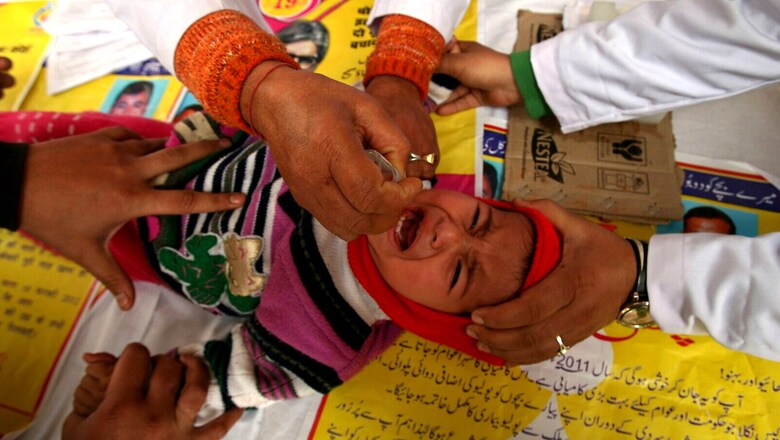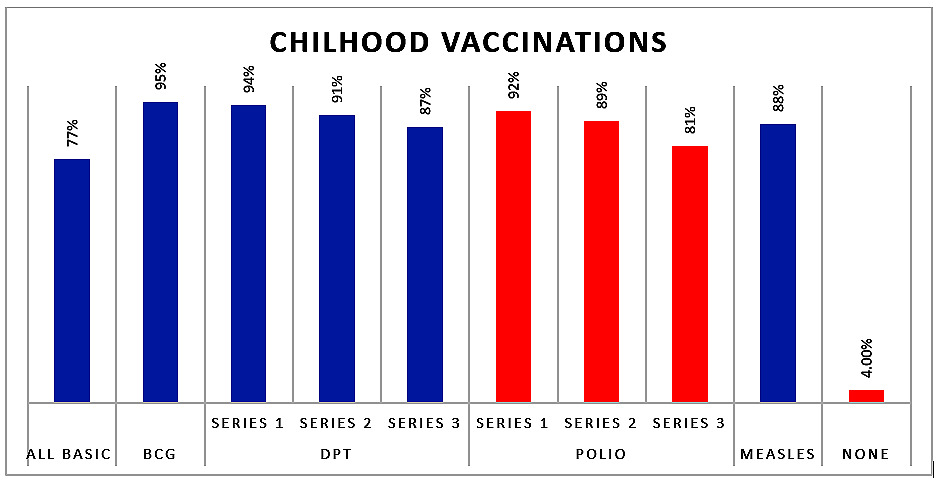
views
One in 200 polio infections can cause permanent paralysis, but thanks to the polio vaccine, 20 million people are walking today who would have otherwise been paralysed by polio. Ultimately, it is through immunisation that Rotary and its Global Polio Eradication Initiative (GPEI) partners will achieve a polio-free world.
Thanks to aggressive vaccination campaigns, developed regions, including the Americas, were certified wild polio-free in 1994, and Europe in 2002. But it was an arduous journey to eliminate the disease in India, a developing nation that was hyper-endemic with polio in the 1990s.
So, how did a country that once accounted for more than 60% of global polio cases reach and maintain a polio-free status?
India focused on maintaining herd immunity through immunisation, and second, the country-maintained surveillance practices to catch silent circulation of the virus. Although India was certified wild polio-free in 2014, and the country has retained its status for close to a decade, the journey is not over.
Earlier this year, the virus re-emerged in developed, polio-free regions, including the United States (New York) and the United Kingdom (London), underscoring the urgency of stopping both wild and vaccine-derived polioviruses (VDPVs) as more people understand that VDPVs can cause paralysis, just like wild poliovirus. Considering increased global trade, a return to international travel, population migration, and the contagious nature of polio, international polio outbreaks are concerning for India.
Survey reveals current vaccination gaps in India
Despite India’s success in eliminating polio, data from India’s Ministry of Health and Family Welfare 2019-2021 National Family Health Survey, (NFHS-5), 2019–21, shows that we cannot be complacent in regard to immunisation. Before the survey was conducted, 77% of children aged 1-2 years received all basic vaccinations.
Yet over time, vaccine uptake, particularly for polio has declined among survey participants. While 92% of children aged 1-2 years received the first dose of the polio vaccine, only 81% of that age group received a third dose.
Additionally, approximately 4% of this demographic received no vaccinations at all. Due to disruptions caused by the pandemic, 25 million children worldwide missed vital immunizations in 2021, of which 6.7 million missed their third dose of the polio vaccine. Addressing declining immunisation rates in India and around the world is critical to preventing the resurgence of polio and a host of other vaccine-preventable diseases.

In that vein, the GPEI’s 2022-2026 polio eradication strategy aims to further integrate polio activities with essential health services and routine immunization, among many adapted approaches and procedures.
In that vein, the GPEI’s 2022-2026 polio eradication strategy aims to further integrate polio activities with essential health services and routine immunization, among many adapted approaches and procedures.
India’s way forward
To fill existing gaps in vaccinations, not only must we raise awareness about polio and the benefits of immunisation to encourage parents to proactively get their children immunised, we must also simplify the processes and procedures to keep track of immunisation records as well as vaccine supplies.
While the Government of India has digitised the vaccine supply-chain through e-VIN, an electronic network that digitises vaccine stocks and monitors the temperature of the cold chain, and launched CoWIN, a web portal for Covid-19 vaccination registration, it must also expand technology capabilities to track immunization records.
Given that vaccinations cards were available for only 85 percent of children aged 1-2 years in the NFHS-5 survey, digital records will allow parents and health systems to keep better tabs on the immunization status of children in the country.
Ultimately, to prevent a global resurgence, Rotary, it’s GPEI partners, and all sectors of society must ensure that polio eradication through continued immunisation remains a global public health priority so that no child will ever suffer from this vaccine-preventable disease again.
Deepak Kapur is the Chairman of the Rotary International’s India National PolioPlus Committee and has been at the helm of India’s Polio eradication campaign since 2002. Views expressed are personal.
Read all the Latest Opinions here


















Comments
0 comment